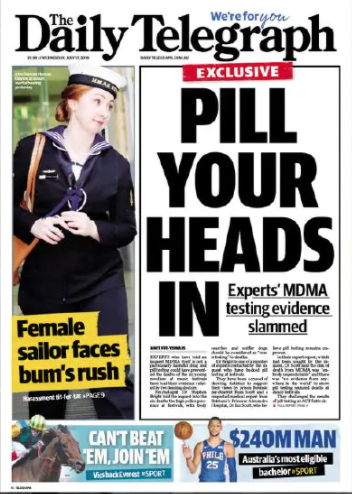Press Council clears Daily Telegraph over pill testing reporting
News Corp’s The Daily Telegraph has been cleared for its reporting over the pill testing debate.
Dr Stephen Bright complained about an article and editorial which claimed he, along with other experts, “have been accused of skewing statistics to support their views”.
The Daily Telegraph’s editorial also reported Dr Bright had said “MDMA itself is not a particularly harmful drug”, which the newspapers said the “families of those six dead Australians may take issue with”.


